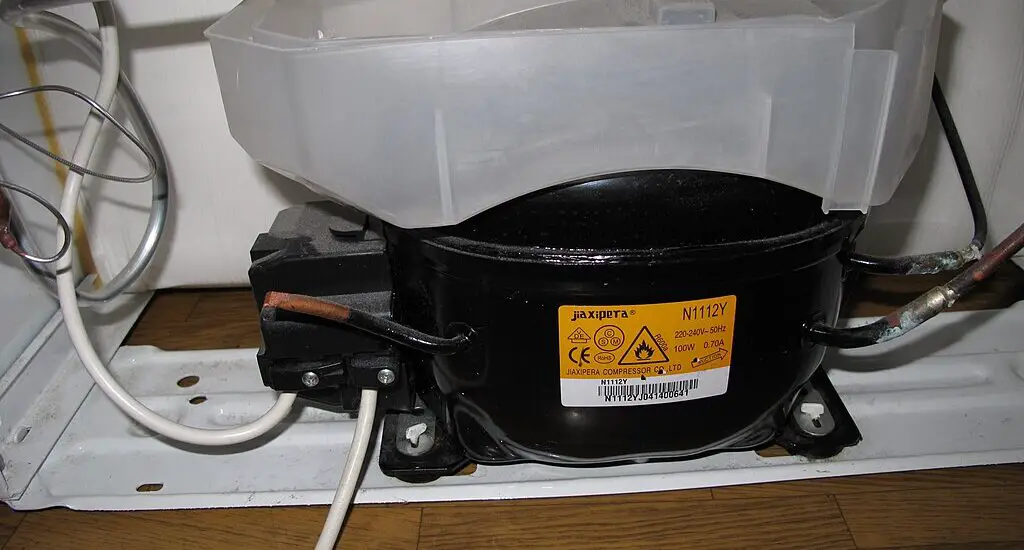If your refrigerator compressor just hums and fails to kick-start, this article offers a detailed, step-by-step guide to diagnosing and fixing the issue.

Common Reasons Why a Refrigerator Compressor Just Hums
Understanding why your refrigerator compressor just hums can give you a better idea of how to address the issue. Here are some common reasons:
Electrical Problems: Electrical issues are often the most straightforward to diagnose. Check the power supply and make sure the refrigerator is properly plugged in. If it is, the issue could be internal. Wiring within the refrigerator can become disconnected or frayed over time, leading to power disruptions. Always unplug your refrigerator before examining any wiring.
Faulty Starter Relay: The starter relay acts like a switch that helps the compressor start running. When it’s defective, it can produce a humming sound because the compressor is trying to start but can’t. The starter relay is usually a small plastic box attached to the side of the compressor. A damaged relay usually rattles when shaken.
Compressor Overheat: If your compressor gets too hot, it may shut down as a safety measure and only emit a humming noise. This happens when the compressor works too hard, usually due to a dirty or clogged condenser coil. Allow your fridge to cool down by unplugging it for an hour or so before plugging it back in.
Step-by-Step Troubleshooting
Here’s a more detailed guide to help you troubleshoot the problem if your refrigerator compressor just hums:
Unplug the Refrigerator: The first rule of troubleshooting any electrical appliance is to ensure it’s unplugged. This prevents any accidental electric shocks or further damage to the refrigerator. Find the power cord and safely unplug it from the electrical outlet.
Locate the Compressor and Starter Relay: Both are usually located behind your refrigerator. You may need to remove a back panel or kickplate to access them. The compressor is typically a large, black or metal object while the starter relay is a small plastic box attached to the compressor’s side.
Inspect the Starter Relay: Detach the starter relay from the compressor carefully. Shake it a bit; if you hear a rattling sound, it’s likely damaged and needs to be replaced.
Test the Compressor: Use a multimeter to test the compressor. Set the multimeter to resistance mode (usually indicated by an Omega symbol Ω). Place the probes on the compressor’s electrical pins and observe the reading. If there is no continuity (infinite resistance), the compressor is faulty and may need to be replaced.
If you’re in need of a multimeter, you can get this AstroAI Multimeter Tester from Amazon.
Check the Wiring: Since electrical issues are a common cause, inspect all visible wires connected to both the compressor and starter relay. Look for frayed wires, disconnected wires, or any signs of burning. If you find any, they’ll need to be reconnected or replaced.
Consult a Professional: If you’ve followed each of these steps and still haven’t resolved the issue, or if you feel uncomfortable performing any of these steps, it’s time to seek professional help. A qualified technician can offer a more thorough diagnosis and solution.
Check out these other articles…
Refrigerator Compressor Gas Pressure: Easy 411 Guide
Refrigerator Compressor Going Out: Signs, Solutions, & More
How Do I Find Out the HP of My Refrigerator Compressor?
Refrigerator Compressor Hot and Not Cooling: DIY Solutions
Refrigerator Compressor Hot But Not Starting: 4 Easy Fixes
When to Seek Professional Help
If after following the above steps your refrigerator compressor still just hums, it’s advisable to consult a professional. Ignoring this problem can result in food spoilage and potentially irreversible damage to your refrigerator.
